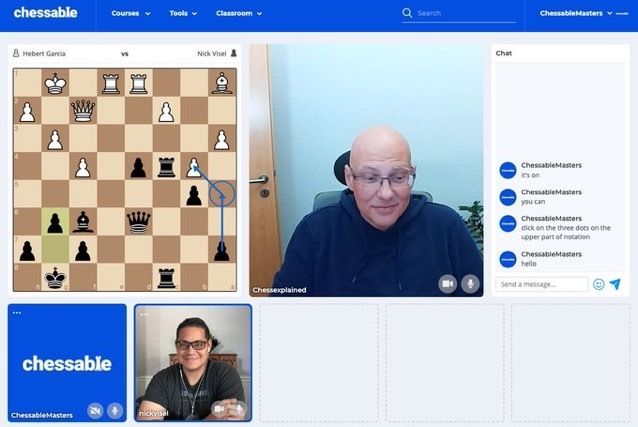
Coach's Corner: Christof Sielecki
Leading up to the Chess Punks Tournament Finals on October 22, we're continuing our Coach's Corner chess improvement series today with International Master Christof Sielecki.
Christof, one of the coaches preparing the 32 finalists in the Chess Punks tournament, is a prolific Chessable author and chess teacher. Known by his YouTube handle "ChessExplained", Christof is easily one of Chessable's most popular authors, with scores of 5-star reviews on his many courses.
Today "ChessExplained" shares his top tips for chess improvement, and the insights certainly show his caliber!
What is your coaching philosophy?
I don't have a one-sentence philosophy. But I believe training should include fixing big leaks and weaknesses, rather than emphasizing the student's strong points. There are more games lost due to mistakes than won due to brilliant ideas. You can't have one extremely weak aspect in your game, so this needs to be improved first. Then, you get to address the things that are already good and work on those. Typically, these are things that the student enjoys. Improvement requires some leaving of the comfort zone, but feeling uncomfortable all the time will lead nowhere.
Suppose a player has only 3 hours a week for chess training. How should they spend their time?
Do a bit of short-move tactics every day (5-10 minutes). Spend the rest reviewing your games, played with at least rapid time control. If possible, do that with the help of a coach or a friend. Don't expect miracles, as 3 hours a week is not a lot, to be honest.
What is the biggest factor for improvement for players under 1200 (Chess.com)? Under 2000?
U1200: Almost all games are decided by short-move tactics. This factor overshadows everything else. Focus on reducing tactical mistakes. Puzzles help, but playing slightly longer games is more important. Try to increase tactical awareness by checking unprotected pieces and threats every move. This will eventually be possible faster and faster, as you increase your tactical awareness.
Under 2000: Still working on tactics, but add game reviews with more depth. Try to figure out what went well and try to find resources about the structures and position types you play. The computer helps with that, but a coach is better.
What is your preferred way to improve at tactics and strategy?
Solving puzzles/exercises is helpful for all levels. This applies to strategy and tactics. For strategy, playing through complete games is useful. You can focus on structures that arise from your openings, but don't limit it to that. Finding "hero players" and studying their games is great, too.

What is your preferred way to improve your openings? What approach to chess openings do you teach your students?
Focus on the most important lines of your opening, for example by learning the Quickstarter lines in your preferred opening courses on Chessable. Then compare your games, ideally ALL of them, with your repertoire and add some knowledge with each review. That's a good, pragmatic approach. As a coach, I always focused on talking about the foundations of opening lines. What are the underlying concepts and what do you want to achieve? Coaches shouldn't help students memorize moves but help to gain a better understanding of the concepts.
What is your preferred way to improve your endgames?
Make sure to know the basic endgames - roughly half of 100 Endgames You Must Know are already excellent to start with. You can add the rest over time.
Then, focus on some highly instructive endgames that feature more pawns and pieces and study them in detail. Classics by Rubinstein, Karpov, Andersson, and Carlsen come to mind. A lot of endgame skill depends on precise calculations. Solving studies is fun and improves that as well.
Christof's Courses
If Christof's advice resonated with you, be sure to check out his Chessable courses! One of Chessable's most prolific authors, there are many of his courses to choose from. Try some of his most popular ones for free here:
Short & Sweet: Petroff Defense Learn how to play the 'unbreakable' Petroff Defense, just like Fabiano Caruana did in his World Championship match against Magnus Carlsen. Christof explains the basics in just 21 simple lines!
Short & Sweet: Sielecki's 1.e4 Christof's Keep It Simple series offers a robust opening repertoire at a fraction of the study load as your typical opening course. Try out his Keep It Simple: 1.e4 course here.
Short & Sweet: Triangle Slav This super-solid response to 1.d4 is not without its venom! Learn the basics in this course.